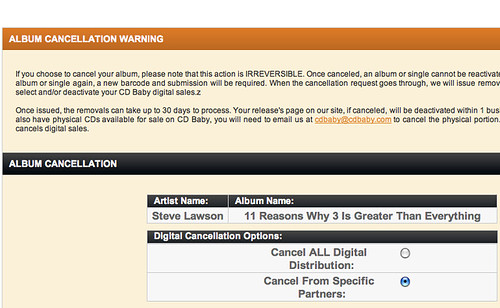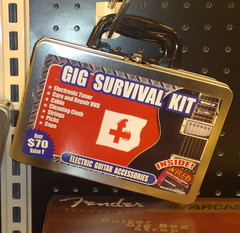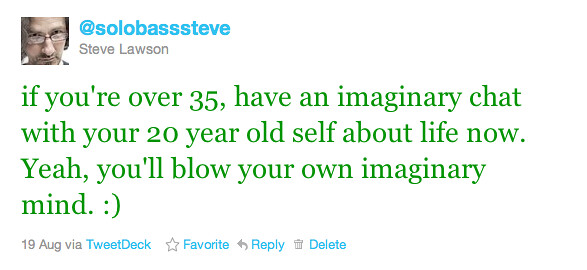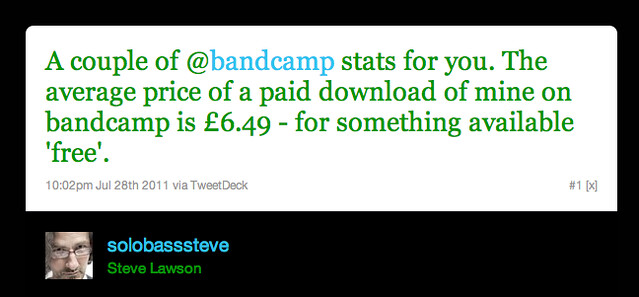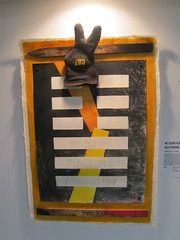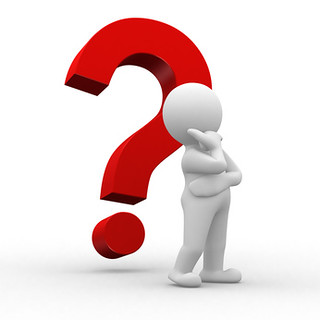[ This is a very long post. Probably too long. You can be the judge of whether it’s worth the effort to read it. I clearly think it is, or I’d have edited it 🙂 ]
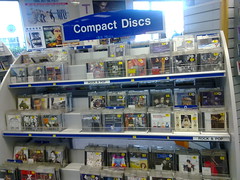 First, some historical context:
First, some historical context:
Back when I was in my teens, my music collection was never big enough. I was avidly looking for new music to expand it, being acutely aware of the gaps in it, both in terms of ‘classic’ records that I’d missed, and emotional states of being that were ill-represented. I was interested in music – any music – that might meet that. I listened to the radio – mainly John Peel on Radio One and whatever weirdness I could find on Radio Three – watched pretty much every music show that was on TV (we only had four channels in the UK back then, so it was easy to watch it all) from Young Musician Of The Year to The Power Hour, The Chart Show To The Hit Man And Her (yes, really) – I was voraciously foraging for music that filled a ‘need’ in my quest for a soundtrack to me.
Music that I imagined to be the holy grail, but which I couldn’t find, became mythologically awesome in my mind. Occasionally, it lived up to that promise, like the first time I finally got to hear Michael Manring (I bought Thonk on CD at Sam Goody in the Harlequin Centre in Watford in 95 – I still remember the feeling of elation when I saw it on the shelf…) More often than not, the hype was unjustified, and I just carried on foraging.
Fast-forward to 2011 and I, like so many other people, have near ubiquitous access to music. I have a lifetime of curated music – 18,886 tracks in my iTunes (that’s 62 days, 16 hours and 35 minutes of continuous listening) plus the combined powers of Spotify and Youtube to give me access to the nostalgic soundtrack of my youth – music I’d never buy, but often go looking for for a myriad reasons. In short, I have no pressing and desperate ‘need‘ of new music.
So how – and more importantly, why – do I discover new music now? I no longer ‘need’ it – I’ve got pretty much everything covered in one way or another, and the ongoing releases by those bands I’m already familiar with could supply me with more than enough music to keep me going for many many years to come.
Now, music is about connection. It’s about meaning, belonging and relationship – it always was, even though that wasn’t my expressed intention when searching – now, that’s pretty much the only thing that means anything. Making sense of the world through music.
Music that
- makes me feel connected,
- Music that makes me happy,
- Music that allows me to delight in the creativity and ingenuity of my friends and people I admire.
- Music that allows me to see my chosen instrument grow beyond the circus-trick nonsense of so much bass-led music from the last 30 years, and into a rich emergent seam of music exploring the sonic potential of the bass.
- Music that speaks of a changing world, that’s inspired by and celebratory or critical of the way things are heading.
- Music that gives hope.
And none of that is communicated by me seeing a link and clicking on it. All of it comes through relationship, either with the artist, or with someone who digs it. The spread of that music, and the meaning it carries, is not primarily through press releases and hyperbole. It’s through conversation, recommendation and the excitement of music fans whose taste I trust.
One of the biggest mistakes any musician can make is to assume that there are millions of fans out there just waiting to hear you, desperate for your music to show them what music is really all about. If the ubiquity of music has changed anything, it has leveled the playing field to such a degree that superlatives are meaningless. Everyone is a genius until you listen to them.
The upside to ‘saturation’ is that the music you’ve never heard of simply doesn’t exist. People who aren’t actively looking for music aren’t ‘swamped’ with it, they aren’t wading through 6 million myspace pages trying to find you. People use Google to find the things they’re looking for, and unless your band has a hopelessly generic name, or you’re a solo artist that shares their name with one or more famous musicians, search engines do a pretty good job of bringing the audience to you who are looking for you.
So, how do we connect with people who aren’t looking for us? One of the things that happens to me on a fairly regular basis – though much less so now that I’ve deleted my MySpace page – is bands or artists emailing or ‘tweeting’ me a link saying ‘hey, check us out’. To which my immediate response is ‘Why?’
Here’s the foundation fact of discovery – your desire to be discovered is of no interest or consequence to me at all. Everyone wants to be heard, that’s a given. Being pushy is no indication that I’m likely to enjoy what I hear. And I neither have the time nor the inclination to check out a band based on their brazenness.
Let’s think for a moment about what happens if I do decide to click the link:
- I’m entering the deal expecting it to be shit. After all, most music is. Being great is really difficult. Even amongst music that is demonstrably ‘great’, there’s still a lot I’m not particularly interested in listening to.
- I’m unlikely to listen past the first few seconds if it doesn’t grab me. That’s an awful way to engage with your audience. iTunes has conned us into thinking that you can make a decision about a piece of music in 30 seconds. Bollocks. For a lot of my most beloved music, 30 seconds at the start of the tune might be one chord, or one repeated bass phrase, or a drum intro. It’s not even close to being indicative of what’s to come.
- I’m not listening with any context at all – I’m hearing your music purely as an exercise in music making. No story, no relationship, no sense of where to place it, what to expect. And the number of times that I’ve heard and fallen in love with music in that way can be counted on the fingers of one hand. Seriously, if you’re banking on being that good, you’re insane. You aren’t that good. I’m not that good. Statistically speaking, no-one is that good. The exceptions prove the rule.
Q: So how do I, and you and people like us, find music?
A: It’s all about the interesting.
I’ve said this hundreds of times before – people won’t find you because you’re good (or pushy) they’ll find you because you’re interesting. And what I find interesting is best represented by the people I allow into my life, the ones I’ve chosen to filter ‘in’ – my friends, my peers, the people I follow on Twitter, the people I’m (good) friends with on Facebook. If I get a recommendation through them, I’m roughly a thousand times more likely to act on it than if it comes through any other channel. If one of my friends who I trust puts out some music, I’ll listen to it. I’ll listen to it all, even if it doesn’t grab me first time. I’ll do that because I WANT to like it. It’s in my best interests to like it, so I’ll give it as much time as I can. If those same people recommend something – especially if I already like the music they make – I’ll listen. I’ll listen expectantly, fully open to the possibility that what I’m about to hear may be awesome.
None of my discovery methods involve people I don’t know shouting at me or spamming me with links to their music and requests that I check out their shit. Anyone who does that is LESS likely to get heard, not moreso. If you’ve spammed me, and soon after someone else that I know says ‘check out this band’, my suspicions are up that they’re just doing it as a favour to you because you’ve been as pushy with them as you tried to be with me.
In short. Discovery happens
- in conversation,
- in communities,
- with context.
- It takes time,
- it’s personal,
- and the right to recommend things is an earned one.
This doesn’t mean, of course that you can’t talk about what you do and your love of it to people who’ve chosen to follow you. The people who are following you on Twitter, or have clicked your ‘like’ button on Facebook have selected you as being worth hearing from. That’s a very good thing, so don’t cock it up by abusing the privilege. I talk about my own music on Twitter a lot. But I talk MORE about other people’s music. On Facebook I talk about my music a lot. But I ask interesting questions that invite people to tell the stories of their relationship with music too.
Context is everything. Relationship is everything. Spam and pushines are less than nothing.
Q for musicians – what does this post mean to you? Is it frustrating and annoying, because you think I should be listening to you? Is it comforting to know that you don’t have to go round spamming people to try and get heard? Are you still lost for what kind of strategic approach is going to work for you and your music? Feel free to vent in the comments 🙂

